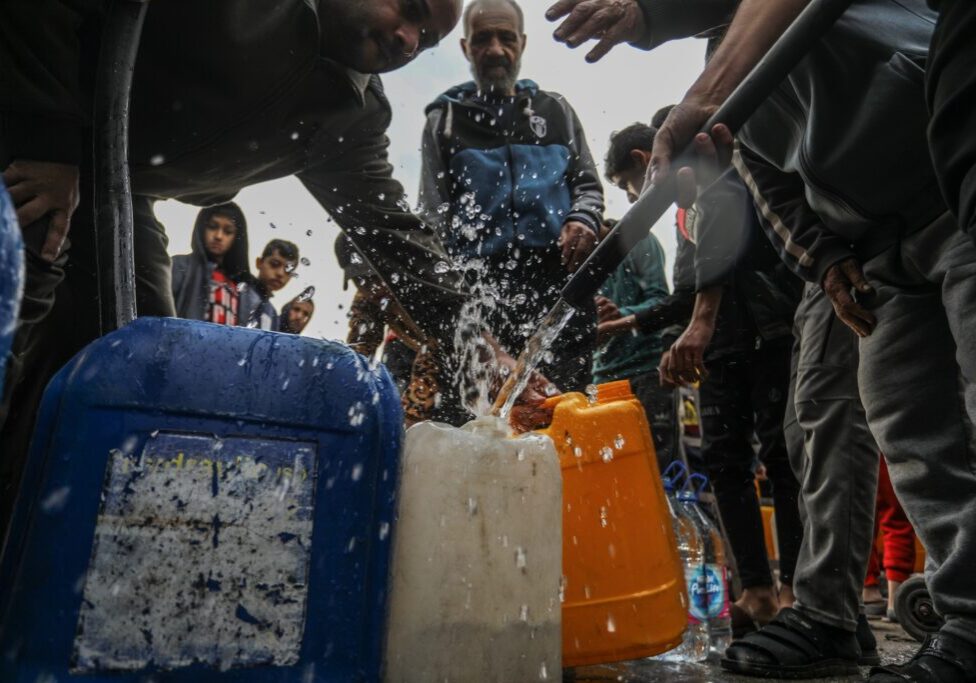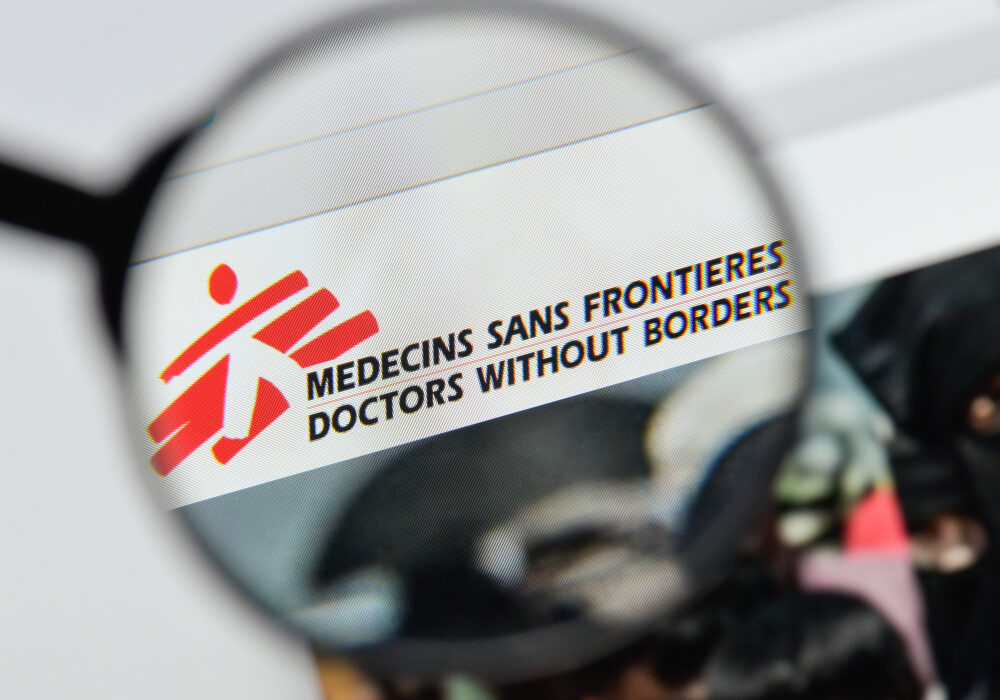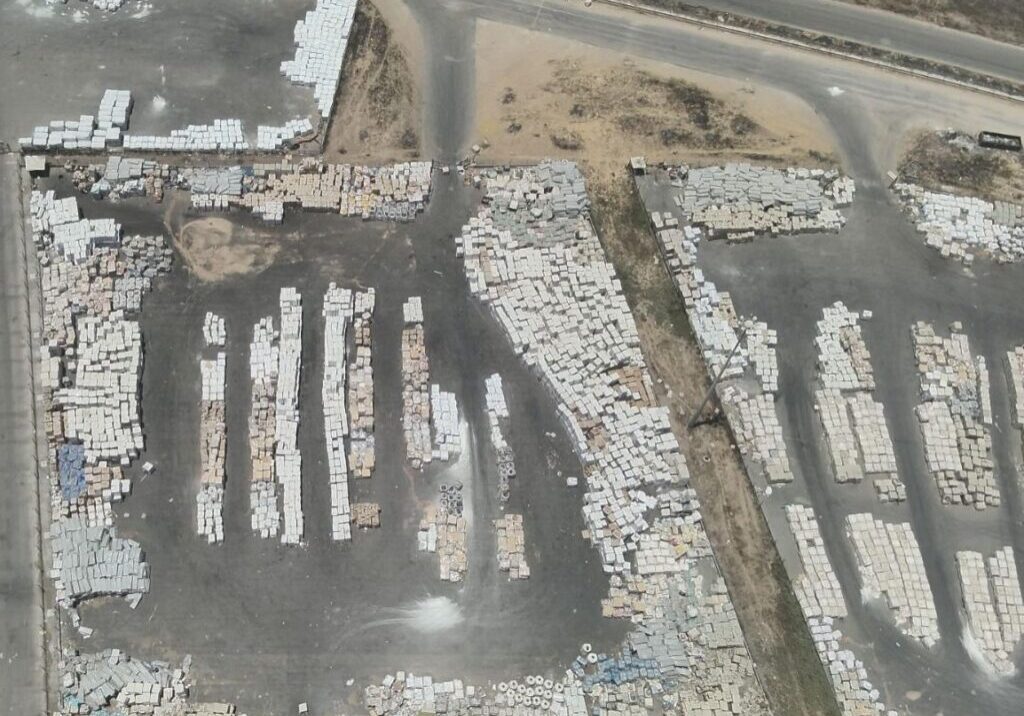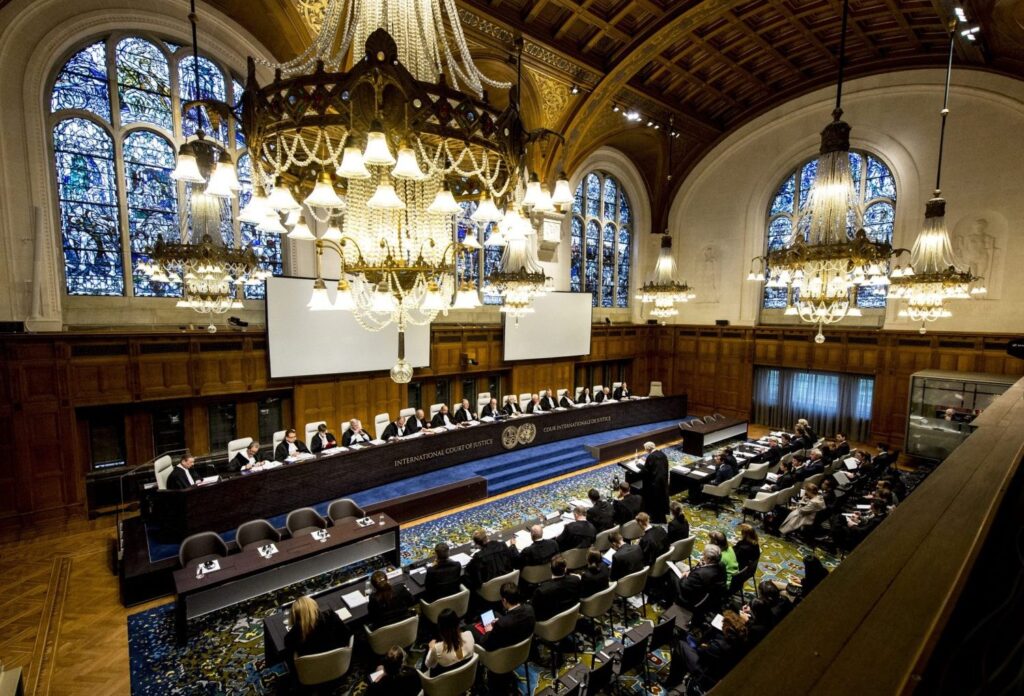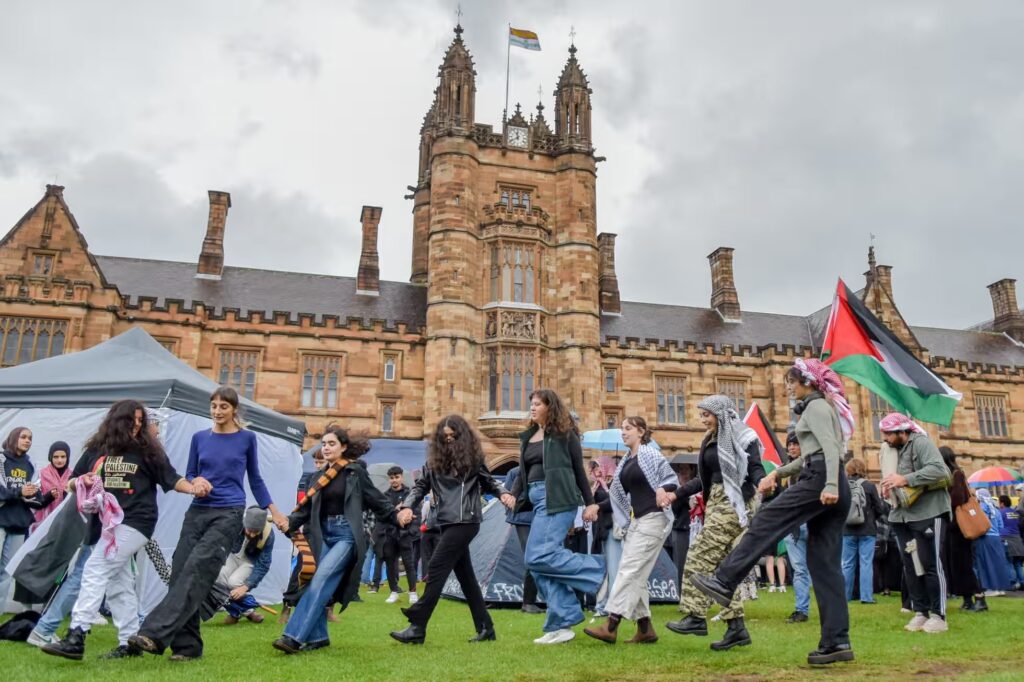FRESH AIR
Australia’s 2017 Foreign Policy White Paper
Dec 4, 2017 | Sharyn Mittelman
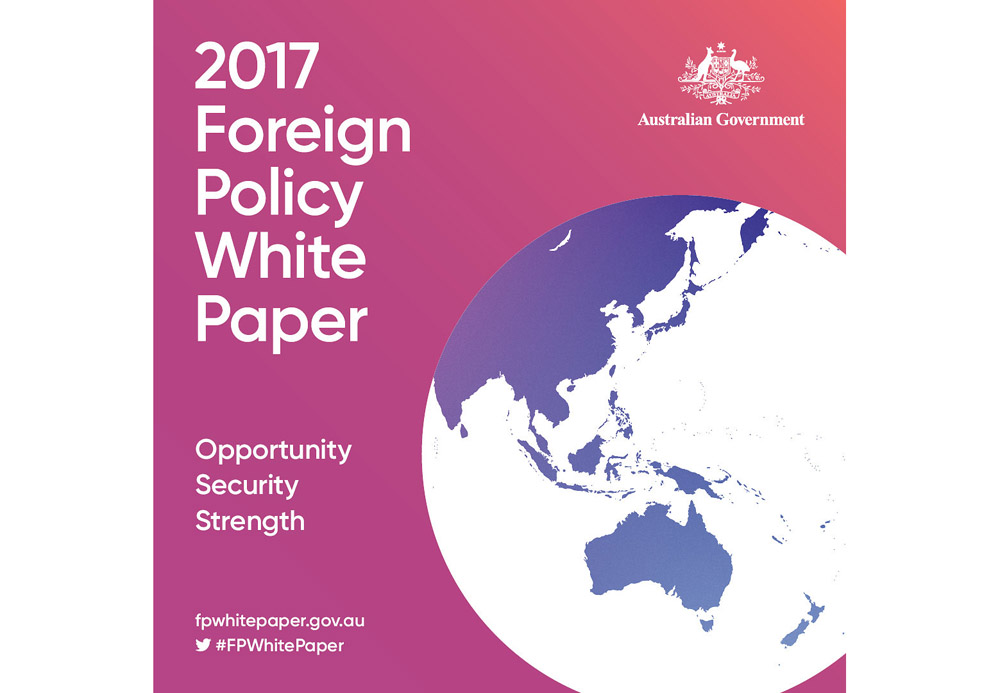
The 2017 Foreign Policy White Paper seeks to navigate Australia’s great uncertainties and challenges in international relations – from China’s rise to the perceived US retreat, regional interests, forces of protectionism and nationalism overseas, and the weakening of the international rules based order. Regarding areas of particular interest to AIJAC, the White Paper discusses issues including Australia’s support for Israel and the two state outcome, multiculturalism, the Iran nuclear deal known as the JCPOA (Joint Comprehensive Plan of Action), the threat of Islamist terrorism and Australia’s role at the United Nations.
Israel
Australia’s friendship with Israel is reinforced in the White Paper, as it states:
“Israel is also an important partner for Australia, with our bilateral ties underpinned by people-to-people links. The security of Israel will remain an abiding concern for Australia.”
Australia’s relationship with Israel continues to go from strength to strength, as reflected again this year, when Australia’s Prime Minister Malcolm Turnbull visited Israel and Israeli Prime Minister Benjamin Netanyahu came to Australia. The visits by the prime ministers led to agreements on trade, cyber technology and defence. Australia is also utilising Israel’s start up success to support its innovation agenda. The White Paper notes that Australia has an innovation “landing pad” in Tel Aviv, which provides Australian start-ups with access to facilities and advice to help them find new customers, investors, mentors and partners.
The White Paper is also realistic on the challenges ahead for Israeli-Palestinian peace but retains its support for a two-state solution. It notes:
“Given major differences between the parties, resolving the Israeli-Palestinian conflict will remain very difficult. Australia will continue to advocate a two-state solution as the only viable path to peace.”
Multiculturalism
AIJAC applauds the White Paper’s support for multiculturalism. The White Paper states:
“Australia is one of the world’s most successful multicultural societies. We are a harmonious, egalitarian and enterprising nation that embraces its diversity. One in four Australians were born overseas (Figure 1.1) and almost half of all Australians were either born overseas or have at least one parent born overseas. We come from virtually every culture, race, faith and nation…
We are united by common values– freedom, democracy, the rule of law and equality of opportunity. The Government this year launched a Multicultural Statement to reaffirm its commitment to an Australia in which racism and discrimination have no place.”
Iran
The White Paper seeks to reflect Australia’s position against nuclear and WMD proliferation including its support for the Iran nuclear deal (JCPOA). It states:
“We will take action, including implementing sanctions, in response to specific nuclear and WMD proliferation concerns, especially in relation to North Korea. We support the Joint Comprehensive Plan of Action with Iran, which is important to efforts to stabilise the Middle East.”
However, Australia’s decision to explicitly support the JCPOA, even when the flaws in the deal are not unknown, could result in outcomes that eventually undermine Australia’s interests in nuclear non-proliferation. The JCPOA is at best a temporary solution to Iran’s nuclear ambitions, as it seeks to prevent Iran from developing nuclear weapons for around ten years. After the sunset clauses expires, Iran may seek to develop nuclear weapons, which would be a disaster for the Middle East. Meanwhile while the JCPOA operates, Iran may be making progress on its nuclear program by testing ballistic missiles, advancing centrifuge technology and the imperfect inspection regime – including the failure to inspect “military sites” – and continued aggressive, expansionist Iranian behaviour only adds to serious concerns about the inadequacy of the arrangement. The US Administration recently decided against certifying Iran’s compliance with the JCPOA and the matter is being considered by the US Congress.
Moreover, the possibility of a nuclear Iran would be especially destabilising for the region, in light of increasing tension between Shi’ite Iran and its network on the one hand and Sunni Gulf States led by Saudi Arabia on the other. This sectarian friction is acknowledged in the White Paper, which states, “Geopolitical tensions between Iran and some Gulf countries are likely to continue, fuelling conflicts within some states in the Middle East…” Some Sunni states are concerned that Iran is seeking to dominate the region and is already indirectly controlling Lebanon through Hezbollah, Yemen through Houthi rebels, Syria through the Assad regime, and Iraq through its government.
While the White Paper maintains that the JCPOA is “important to efforts to stabilize the Middle East”, the many critics believe the current JCPOA contributes to destablisation of the Middle East, and that world powers should seek to overcome the serious flaws of the JCPOA.
Terrorism
The White Paper is sober and serious in acknowledging the serious threat posed by “Islamist terrorism” in Australia, the region and globally. The White Paper reads:
“The threat from terrorism will remain high and could worsen over the decade. There are now more Islamist extremists from more countries active in more places than ever before. Extremists will continue to exploit fragile and violence-prone states, including in Southeast Asia, for safe havens and to build skills. Globally, terrorism will add to instability and drive international security interventions, especially in the Middle East and Africa. Communications technology allows extremists to inspire or direct attacks remotely, often through encrypted means, underlining the complexity and unpredictability of the risks we face. New technologies could make it easier for terrorists to make advanced biological or chemical warfare agents. Recent attacks and disruptions in Australia highlight the dynamic nature of the extremism challenge.”
The White Paper also acknowledges the likelihood of “mass casualty” terror attacks on Western targets in our region:
“With the conflicts in Syria and Iraq having energised Islamist extremists at a level not seen before, these threats will have a generational impact. Extremist narratives will continue to inspire violence globally, even as the so-called Islamic State (ISIL) loses ground in Iraq and Syria…
The terrorism threat in Southeast Asia is increasing because of links between local extremists and terrorist groups such as ISIL, with the situation in the southern Philippines of pressing concern. We must plan on the basis that a mass casualty attack against western targets in Southeast Asia will take place.”
In addition, the White Paper looks at the threat of terrorism in Australia from returning Islamist fighters from Syria and Iraq, it states:
“The return of foreign terrorist fighters and their families from Iraq and Syria will continue to challenge the security of Australia, our region and the world. Some will be motivated to conduct or inspire terrorist attacks in their home countries. More than 200 Australians have travelled to these conflict zones and about 40 have returned. Some of these individuals remain a significant security concern.
The Government is responding decisively. We have cancelled or refused more than 200 Australian passports to prevent further travel to and from conflict zones. We will continue to work with international partners to bring foreign fighters to justice, prevent their movement across borders and manage the risks of their return to their countries of origin…
The spillover of fighters, money, propaganda and ideology from extremist groups in the Middle East is increasing the threat of terrorism in and to Southeast Asia. Fighters from our region may seek to return to their countries as ISIL loses territory in Iraq and Syria, and some will be battle-hardened and primed to conduct attacks. There have already been a number of ISIL-inspired terrorist attacks in Indonesia and elsewhere in the region.”
Australia’s robust approach to counter-terrorism is also detailed in the White Paper. Regarding Australia’s counter-terrorism efforts, the White Paper notes:
“The Government has already invested an additional $1.5 billion since August 2014 to combat terrorism. We have strengthened counter-terrorism legislation, more than tripled our investments to counter violent extremism at home and established the Centre for Counter-Terrorism Coordination to improve coordination across government. Australia’s Counter-Terrorism Strategy is based on partnerships between all levels of government, communities and the private sector.
It focuses on:
• disrupting terrorist activity within Australia
• ensuring an effective response to and recovery from any terrorist incidents
• reducing the lure of violent extremist ideologies
• stopping Australians from using violence to express their views, and
• contributing to global counter-terrorism efforts.
At home, the Government has strengthened our control order regime, allowing us to monitor and limit where terrorist suspects can go and with whom they can associate. We have legislated to enable the continued detention of high-risk terrorist offenders. With the states and territories, local government, police and the private sector, we are implementing a strategy to protect crowded places, such as sporting stadiums.
The Government is taking steps to provide our law enforcement and security agencies with the capabilities to monitor the digital communication of terrorists. While Australia supports strong encryption to protect personal, commercial and government information, we will work with other countries and companies to ensure terrorists cannot operate with impunity in ungoverned digital spaces.
We work domestically and with our international partners to counter the drivers of violent extremism through early intervention and community engagement, and by challenging terrorist propaganda and recruitment techniques.”
The White Paper also mentions that in 2018 Australia will host the ASEAN – Australia Counter-Terrorism Conference to put in place a plan for collective regional action.
United Nations
The White Paper notes that Australia will seek election to the UN Security Council as a non-permanent member in 2029-2030, “because we believe elected members can enhance its effectiveness, as Australia did when we were on the Council in 2013-2014.”
The White Paper acknowledges the need for reform at the UN, as it writes:
“The Government recognises that many multilateral institutions have clear limitations. The United Nations system is frequently cumbersome and sometimes responds too slowly to urgent challenges. Our approach seeks to reinforce the strength, accountability and effectiveness of international institutions.
We will encourage the United Nations and its agencies to better coordinate activities, reform their corporate governance and work more closely with the private sector, including by tapping into private funding. We will continue to support the current Secretary-General’s efforts to reform and strengthen UN peacekeeping, peacebuilding and development systems. We particularly encourage a more coordinated focus on conflict prevention, rather than waiting for crises to develop.”
The disproprotionate focus on Israel by some UN institutions, especially UNESCO and UNHRC, not only reflects entrenched bias against Israel but is also being used as a smokescreen to avoid discussing genuine human rights abuses by other member states. Neverthless, it is to be hoped that Australia can play an important role at the United Nations to encourage more balance on these issues including the promotion of democratic values and universal human rights.
Conclusion
The White Paper sets out a vision for Australia’s foreign policy at a time of great change and uncertainty. It seeks an agenda for security and prosperity including a “flexible and competitive economy” while noting a range of challenges ahead for Australia including growing terrorism and cyber attacks. On these issues Australia’s cooperation with Israel may be very positive, as Israel is considered a global leader in innovation and defence including counterterrorism and cyber technology. Therefore, the Australia-Israel “partnership” has the potential to reap mutual benefits that may help both nations successfully navigate the murky international waters ahead.
Sharyn Mittelman
Tags: Australasia, Australia, Indonesia



